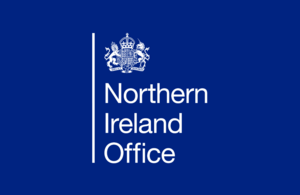Government introduces amendments to NI Troubles legacy legislation
The UK Government has formally tabled significant amendments to legislation seeking to address the legacy of the Troubles in Northern Ireland.

The UK Government has today formally tabled significant amendments to legislation seeking to address the legacy of the Troubles in Northern Ireland.
The move comes ahead of the Report Stage of the Northern Ireland Troubles (Legacy and Reconciliation) Bill, scheduled to proceed in the House of Lords later this month.
The legislation aims to deliver better outcomes for all those most affected by the Troubles, while helping society to look forward.
The latest amendments seek to address a number of key concerns raised since the Bill’s introduction, including by victims and survivors.
They include:
- Allowing ongoing criminal investigations, inquests, the consideration of prosecution decisions, and the publication of reports, to continue until May 2024, ensuring a smooth transition between the ending of the current mechanisms and the Independent Commission for Reconciliation and Information Recovery (ICRIR) taking on full responsibility for dealing with legacy cases.
- Placing the ICRIR under a new duty to offer victims and their families the opportunity to submit personal impact statements. These statements must be published if the person making the statement so wishes, subject to limited exceptions.
- Placing the ICRIR under a new duty requiring it to take reasonable steps to secure information relevant to the assessment of the truth of a person’s account as part of their application for immunity.
- The revocation of immunity if an individual is subsequently convicted of terrorism offences or offences connected to terrorism committed after immunity was granted .
- Expressly confirming that the Commissioner for Investigations, when exercising operational control over the conduct of reviews, must comply with obligations imposed by the Human Rights Act 1998.
- Placing a new duty on the ICRIR to publish a statement explaining how each review was conducted as part of its final report, thus enhancing the transparency of its work.
- Placing a duty on the ICRIR to produce guidance which is related to determining a request for immunity. This will replace a power which currently sits with the Secretary of State for Northern Ireland.
Secretary of State for Northern Ireland, Chris Heaton-Harris MP, said:
“The Government has consistently stated that it would continue constructive dialogue in order to alleviate concerns and strengthen the Bill. That is why we have published a number of significant amendments that directly address a number of key concerns raised by interested parties.
“This includes amendments on the conduct of reviews, compliance with Convention Rights, the independence of the Commission, conditional immunity, and ongoing legal processes.
“We remain absolutely committed to making legislative progress so that the Independent Commission for Reconciliation and Information Recovery (ICRIR) can be established, and begin delivering better outcomes for those most affected by the Troubles, as swiftly as possible.”
Note to Editors:
More details on the amendments to the Northern Ireland Troubles (Legacy and Reconciliation) Bill can be found here.
A Bill to address the legacy of the past in Northern Ireland was introduced on 16th May 2022.
The Bill passed in the House of Commons on 4th July 2022 and completed the Committee Stage in the House of Lords last month.
Key features of the Bill:
- A new independent body - the Independent Commission for Reconciliation and Information Recovery (ICRIR) - that will focus on the recovery and provision of information about Troubles-related deaths and most serious injuries.
- For those families that want to get answers about what happened to their loved ones, the body would have all necessary policing powers to carry out reviews, which may include a criminal investigation. Once it has concluded its review into a case, it will publish a report setting out the details of its investigation, and its view about what happened.
- A process of Conditional Immunity, to apply to any serious or connected offences involving deaths or serious injuries during the Troubles.
- A Judge-led panel within the ICRIR will grant immunity to individuals who provide a truthful account of their involvement in Troubles related deaths and serious injuries.
- A package of memorialisation measures centred on a major oral history initiative. The overall aim would be to help build an understanding of history that reflects the complexity of the events of the past, as well as the broader landscape and context in which they took place.